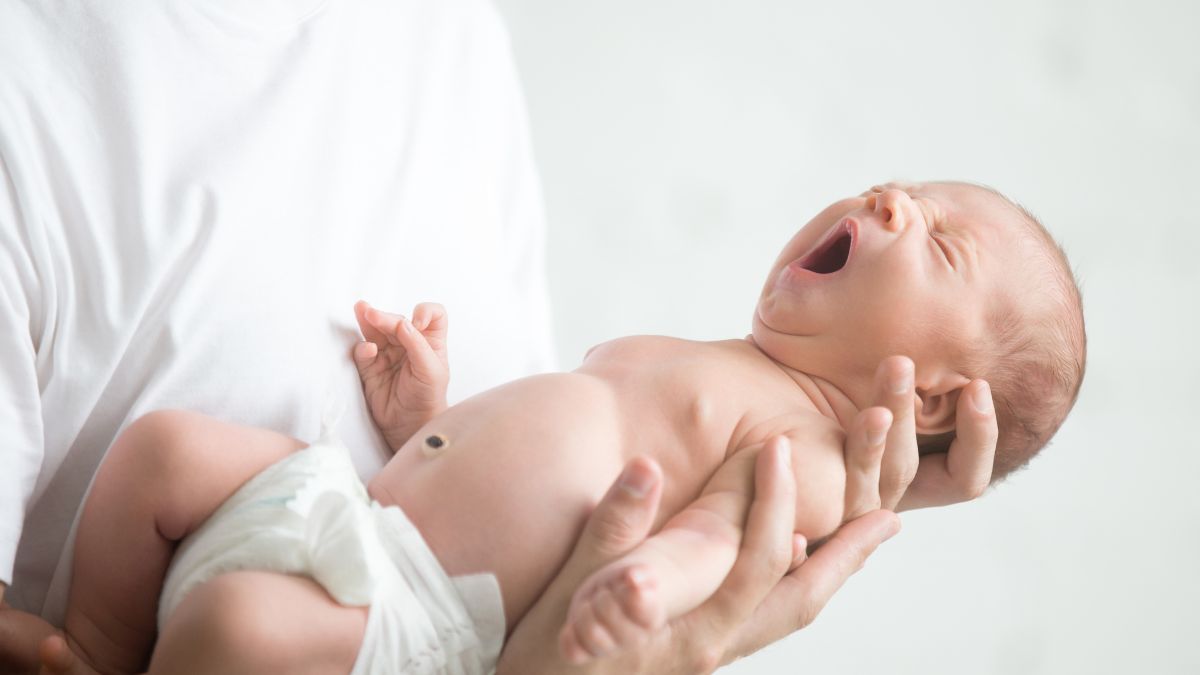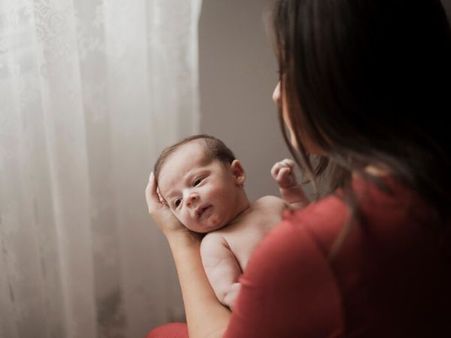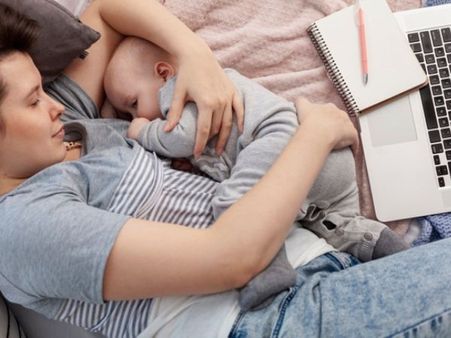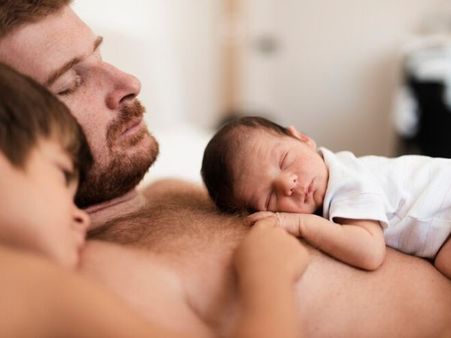Just In
- 38 min ago

- 2 hrs ago

- 10 hrs ago

- 10 hrs ago

Don't Miss
- News
 Elon Musk Postpones India Visit: New Dates Awaited For Tesla CEO's Trip
Elon Musk Postpones India Visit: New Dates Awaited For Tesla CEO's Trip - Movies
 Paarijatha Parvam Full Movie Leaked Online In HD For Free Download Hours After Its Theatrical Release
Paarijatha Parvam Full Movie Leaked Online In HD For Free Download Hours After Its Theatrical Release - Technology
 itel S24 With 108MP AI Dual Camera India Launch Confirmed; Amazon Microsite Goes Live
itel S24 With 108MP AI Dual Camera India Launch Confirmed; Amazon Microsite Goes Live - Finance
 Daily Relative Strength Index RSI In A Bullish Mode of This Pharma Stock; Buy For TP Rs 635-685
Daily Relative Strength Index RSI In A Bullish Mode of This Pharma Stock; Buy For TP Rs 635-685 - Sports
 RCB Green Jersey Match: Record And Stats Ahead of KKR Meeting in IPL 2024
RCB Green Jersey Match: Record And Stats Ahead of KKR Meeting in IPL 2024 - Automobiles
 Mahindra XUV 3XO SUV – Everything We Know So Far
Mahindra XUV 3XO SUV – Everything We Know So Far - Education
 Exam Pressure Does Not Exist; Studying Punctually is Crucial; Says Aditi, the PSEB 2024 Topper
Exam Pressure Does Not Exist; Studying Punctually is Crucial; Says Aditi, the PSEB 2024 Topper - Travel
 Journey From Delhi To Ooty: Top Transport Options And Attractions
Journey From Delhi To Ooty: Top Transport Options And Attractions
Parenting Tips: Newborn Sleeping Habits Every Parent Must Know
During the first few days after birth, a newborn usually sleeps much of the day and night, waking only to feed. It is often difficult for new parents to figure out how long and how often their newborn should sleep.
The average newborn sleeps at least 16 to 17 hours daily. However, some babies may not sleep for more than two to four hours at a time, during the day or at night [1].

As such, parents should take steps to assist their child in sleeping, since this habit helps them grow in a healthy manner.
Read on to know more about Newborn Sleeping Habits Every Parent Must Know.
Sleeping Habits In Newborns
A newborn's sleeping pattern changes significantly during the first few weeks of their life and each baby's sleep pattern varies. Parents should monitor their child's sleeping habits and note any changes that occur.
Experts advise parents to hold their baby close to them while they're sleeping. The warmth of a parent is required for the newborn to feel the love and tender care of its parents. The newborn should also wake up during the night, since it is not normal for a newborn to sleep throughout the night for the first few weeks following birth [2].
So, here are some newborn sleeping habits that new parents should be aware of.

What Are The Sleep Patterns Of A Newborn?
A newborn typically sleeps about 8 to 9 hours during the day and about 8 hours at night. However, since babies have a small stomach, they must awaken every few hours to eat. Most babies do not begin sleeping through the night until they are at least three months old [3].
As with adults, babies experience various stages in sleep. Depending on the stage, the baby will move aggressively or lie very still. Infant sleep patterns are formed during the third trimester of pregnancy, starting out with active sleep, then quiet sleep by the eighth month.
There are two types of sleep in newborns:
1. REM Sleep
The rapid eye movement sleep (REM) occurs when dreams occur and the eyes move rapidly back and forth. The average baby sleeps about 16 hours per day, but approximately half of that time is spent in this type of sleep. The amount of time spent in REM sleep in older children and adults has decreased significantly [4].
2. Non-REM Sleep
Non-REM has 4 stages in newborns:
- Stage 1: Drowsiness, drooping of the eyes, opening and closing of the eyes, dozing.
- Stage 2: The infant is in a light sleep, but may move and jump in response to sound.
- Stage 3: The baby is in a deep sleep and is quiet and motionless.
- Stage 4: The baby is in a very deep sleep and is not moving or talking.
As part of the sleep cycle, a baby enters stage 1, continues into stage 2, then into stage 3, then into stage 4, then back to stage 3, then into stage 2, then back to stage 3, then to REM [5].
These cycles may occur several times during sleep. In the first few months, babies may awaken after passing from deep sleep to light sleep and may have difficulty returning to sleep.

The Importance Of Babies Waking Up At Night
During sleep, babies wake up primarily because their brain waves shift and change cycles as they transition from rapid eye movement (REM) to non-REM sleep stages. The different wave patterns our brains make during certain periods of sleep define these sleep cycles or stages of sleep.
In addition, newborns who sleep for extended periods of time should be awakened to feed [6].
What Happens If The Baby Sleeps Throughout The Night?
Parents are advised not to allow their newborns to sleep right through the night, according to experts. This sleeping pattern could only result in infant or cradle death. Also, as mentioned previously, newborns who sleep for extended periods of time should be awakened for feeding.
You should wake your baby every three-four hours to eat until they begin to gain weight, usually within the first couple of weeks. Thereafter, you may let your baby sleep longer periods at night [7].

How Can Newborns Get a Good Night's Sleep?
In general, newborns should sleep between 14 and 17 hours during a 24-hour period; however, some newborns may sleep between 18 and 19 hours per day.
A newborn baby requires closeness, like an external womb, for comfort, so it is very important for the parent to hold the baby in their arms while the baby is going to sleep. It is also very critical to establish a consistent, calming bedtime routine.
Should Babies Cry In Their Sleep?
A newborn or an infant in their first few weeks of life may cry, or scream in their sleep. Because their bodies have not yet mastered the challenges of a regular sleep cycle, it is not uncommon for young children to wake frequently or make strange noises while sleeping.

The primary mode of communication for very young babies is crying, so it is understandable that babies cry frequently and might also cry during sleep [8]. If a child does not exhibit any additional concerns, such as signs of illness or pain, it is considered developmental normal, and does not indicate that something is wrong with them.

Is Co-Sleeping Important?
A co-sleeping arrangement is important at least for premature infants. While co-sleeping (aka bed sharing) is not endorsed by many experts due to the risk of sudden infant death syndrome (SIDS), others suggest physical contact, as part of close co-sleeping, helps babies breathe more regularly, use energy more efficiently, grow faster, and experience less stress [9][10].
If you are planning to co-sleep with your baby, be sure to avoid hazardous conditions and follow the guidelines closely. Essentially, room sharing, but not sleeping in the same bed, is the safest sleeping arrangement.
On A Final Note...
A baby may not sleep through the night until they are around one year old. Most babies will wake up and be ready to eat every three hours. The frequency with which your baby will eat is determined by what he or she is being fed and their age.
To determine whether you need to wake your baby for feeding, you should speak with your healthcare provider.
- When should I worry about newborn sleep?
The amount of sleep your newborn receives on a regular basis may be a cause for concern. If your baby is sleeping for more than 17 hours a day and it is interfering with his or her ability to eat eight times a day, it may be necessary for you to speak with your pediatrician.
- How long should newborns sleep for?
Generally, newborns should sleep 14-17 hours over the course of a 24 hour period. Some newborns may sleep up to 18-19 hours a day. Babies who are breastfed should be fed about every two to three hours.
-
 pregnancy parentingFrom Contractions To Water Breaking: Knowing When It's Time For The Hospital During Pregnancy
pregnancy parentingFrom Contractions To Water Breaking: Knowing When It's Time For The Hospital During Pregnancy -
 pregnancy parentingBirth Control Pills Can Affect This Primary Function In Women: Find Out What
pregnancy parentingBirth Control Pills Can Affect This Primary Function In Women: Find Out What -
 pregnancy parentingTwo Wombs, Four Hearts: US Mom's Extraordinary Double Uterus Pregnancy
pregnancy parentingTwo Wombs, Four Hearts: US Mom's Extraordinary Double Uterus Pregnancy -
 pregnancy parentingDelhi Air Quality Crisis: How Air Pollution Can Affect Unborn And Newborn Babies? Precaution Tips For Pregnant
pregnancy parentingDelhi Air Quality Crisis: How Air Pollution Can Affect Unborn And Newborn Babies? Precaution Tips For Pregnant -
 pregnancy parentingHow To Get That Post-Pregnancy Glow?
pregnancy parentingHow To Get That Post-Pregnancy Glow? -
 pregnancy parentingDon’t Do These 3 Things In The First Month Of Pregnancy
pregnancy parentingDon’t Do These 3 Things In The First Month Of Pregnancy -
 pregnancy parentingSupreme Court Rejects Plea To Abort At 27-Weeks: Risks Of Terminating Pregnancy At Advanced Stage
pregnancy parentingSupreme Court Rejects Plea To Abort At 27-Weeks: Risks Of Terminating Pregnancy At Advanced Stage -
 pregnancy parentingAre Epidurals Painful? Should Every Pregnant Woman Consider It During Delivery?
pregnancy parentingAre Epidurals Painful? Should Every Pregnant Woman Consider It During Delivery? -
 pregnancy parentingAnushka Sharma Pregnancy Rumour: How Soon Can You Get Pregnant After Your First? Tips To Consider
pregnancy parentingAnushka Sharma Pregnancy Rumour: How Soon Can You Get Pregnant After Your First? Tips To Consider -
 pregnancy parentingWhat Is The Right Gap Between Two Pregnancies? Who Should Take Extra Precautions?
pregnancy parentingWhat Is The Right Gap Between Two Pregnancies? Who Should Take Extra Precautions? -
 pregnancy parentingWhy Some Women Don't Feel Pain During Childbirth: Is It Normal?
pregnancy parentingWhy Some Women Don't Feel Pain During Childbirth: Is It Normal? -
 pregnancy parentingBalancing Baby Bumps And Blackboards: Tips For Pregnant Teachers Who Go To Work
pregnancy parentingBalancing Baby Bumps And Blackboards: Tips For Pregnant Teachers Who Go To Work


 Click it and Unblock the Notifications
Click it and Unblock the Notifications



